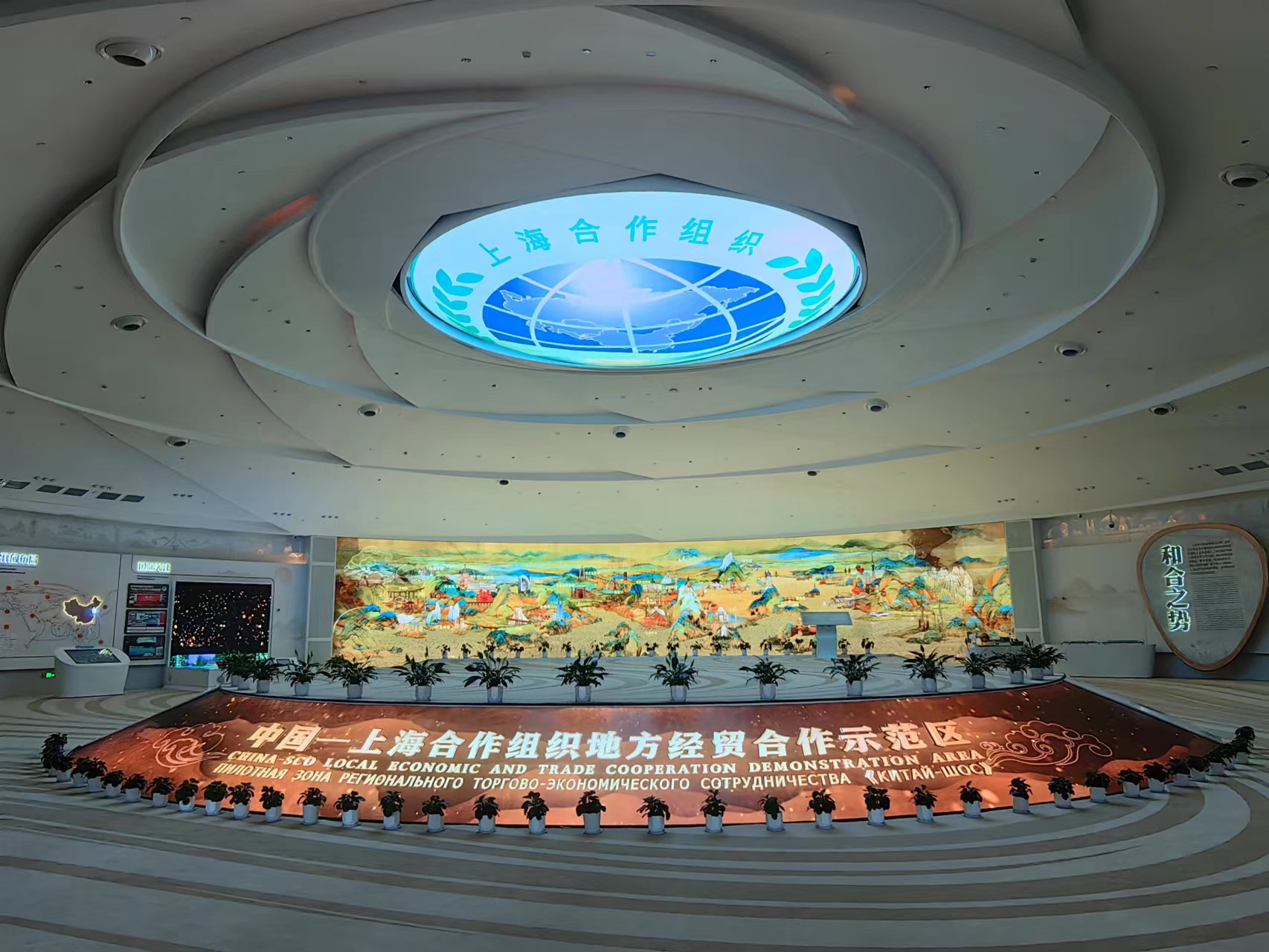
The?exhibition?hall?of?the China-SCO Local Economic and Trade Cooperation Demonstration Area in Qingdao. (PHOTO: ZHONG Jianli/S&T Daily)
By ZHONG Jianli
The China-Shanghai Cooperation Organization (SCO) Local Economic and Trade Cooperation Demonstration Area, established in Qingdao in east China in 2019 to deepen cooperation with the SCO countries and the Belt and Road Initiative (BRI) economies, is playing a bigger role in strengthening industrial and supply chains and gathering global innovation resources five years on.
Currently, it has 31 international freight train lines connecting 54 cities in 23 SCO and BRI countries. In 2022, the volume of containers transported via these lines reached 279,000 TEU, a year-on-year increase of 5.4%.
It has made a number of reforms to simplify procedures and create a conducive environment for domestic and foreign professionals and entrepreneurs to start their businesses.
The SCO comprehensive economic and trade service platform was launched in 2022 to strengthen logistics connections and promote trade cooperation for orderly flow and efficient allocation of resources among China and other SCO countries.
Nearly 5,000 enterprises from 27 industries such as electronic technology, biomedicine and mechanical equipment have registered with the platform.
The online Qingdao International Energy Trading Center, co-built by the SCO demonstration area and Shandong Port Group, was set up to improve multilateral trade facilitation in energy trading, supply chain finance and digital services. The center has launched trade in six commodities, including crude oil, natural gas and fuel oil.
"It took only eight hours to complete company registration procedures, including opening a bank account and tax registration," said Jiang Gongbao, founder of Shandong Longai Science and Technology Development Co. Ltd., which provides services for transferring technology and introducing experts from home and abroad. "I was impressed by the efficiency of the administration. It's a vibrant place full of entrepreneurship."
The SCO Global Innovation and Entrepreneurship Competition is an opportunity for talents from around the world to incubate their projects in the demonstration area. The winners receive capital or investment support from the local government.
According to the organizers of the competition, more than 200 teams participated this year, covering such areas as new energy, new materials, aerospace and industrial Internet.
The trio will conduct a series of experiments in fields such as life science, fluid physics, combustion science and materials science. Notably, this is the first time that fruit flies have been taken on a Chinese space mission as experimental subjects. What made scientists choose fruit flies? What experiment will they undergo?
